Indigenous Governance Database
intergovernmental agreements
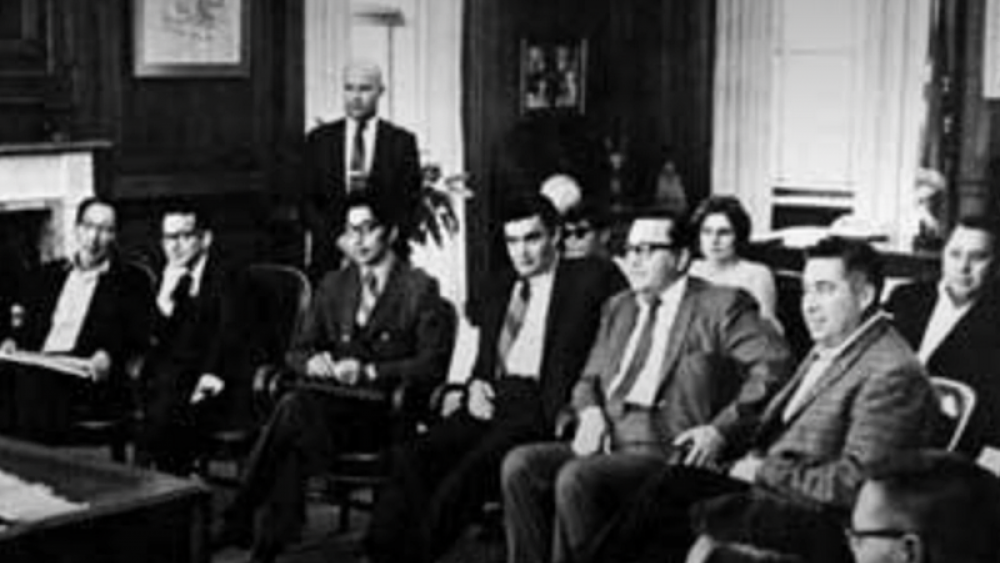
ANCSA at 50: America’s Forgotten Indigenous Rights Movement
Fifty years ago, the Alaska Native Claims Settlement Act passed into law. In one historic piece of legislation, Indigenous Alaskans’ claims to the land were extinguished and a new Indigenous legal landscape was formed. In exchange, Alaska Native communities received title to 44 million acres of…
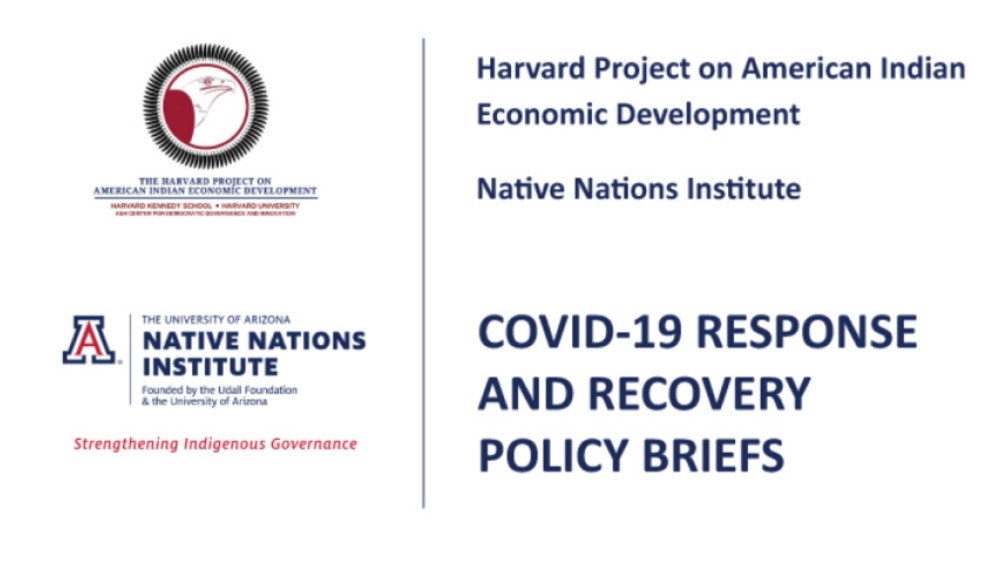
Policy Brief: Emerging Stronger than Before: Guidelines for the Federal Role in American Indian and Alaska Native Tribes’ Recovery from the COVID‐19 Pandemic
The COVID‐19 pandemic has wrought havoc in Indian Country. While the American people as a whole have borne extreme pain and suffering, and the transition back to “normal” will be drawn out and difficult, the First Peoples of America arguably have suffered the most severe and most negative…
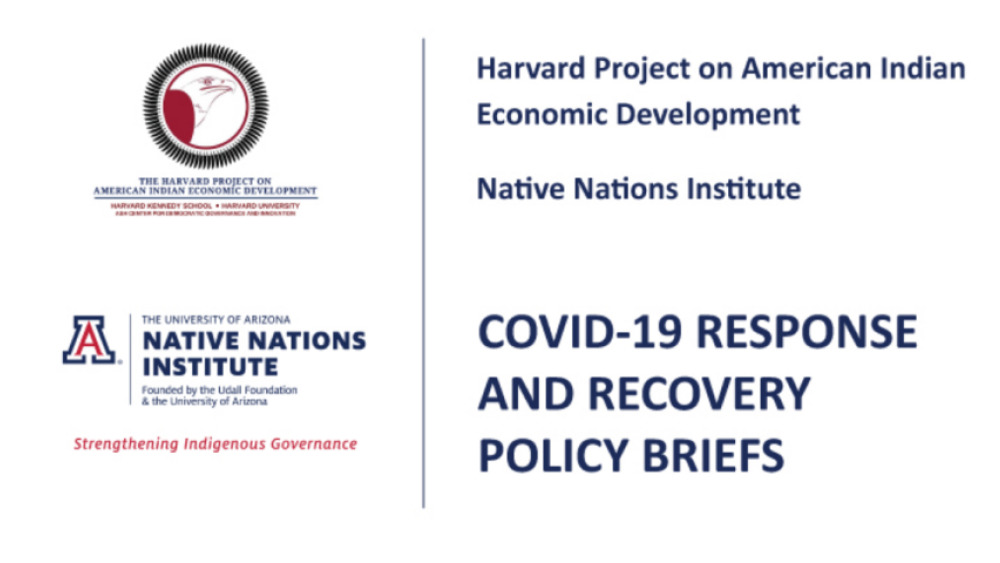
Policy Brief: Proposal for a Fair and Feasible Formula for the Allocation of CARES Act COVID‐19 Relief Funds to American Indian and Alaska Native Tribal Governments
Title V of the CARES Act requires that the Act’s funds earmarked for tribal governments be released immediately and that they be used for actions taken to respond to the COVID‐19 pandemic. These may include costs incurred by tribal governments to respond directly to the crisis, such as medical or…
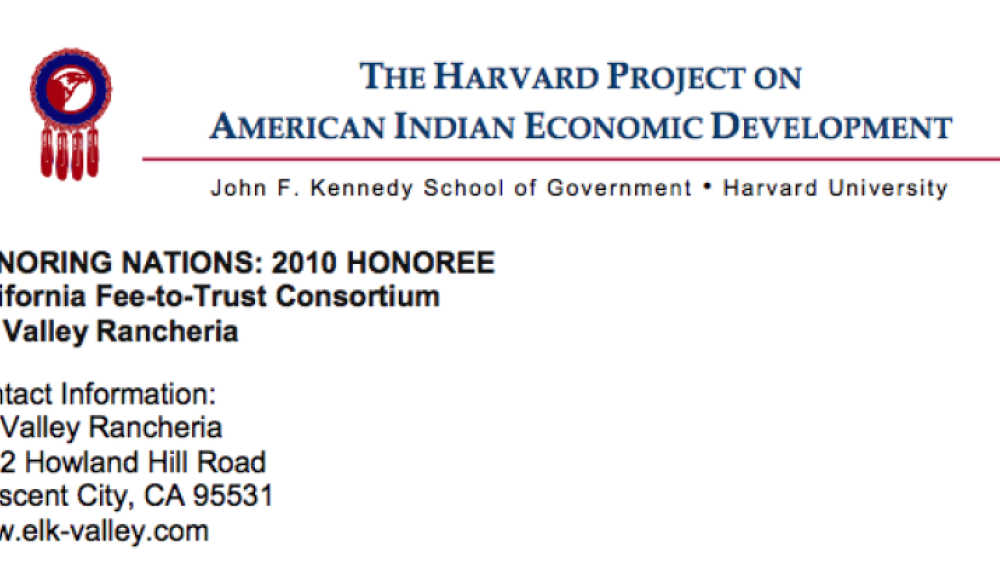
California Fee-to-Trust Consortium
The loss of traditional land is a source of longstanding trauma for Native nations. It has far reaching consequences that began at the time of dispossession and persist today. Many tribes struggle to regain territory in order to support the basic needs of their citizens – housing, economic…
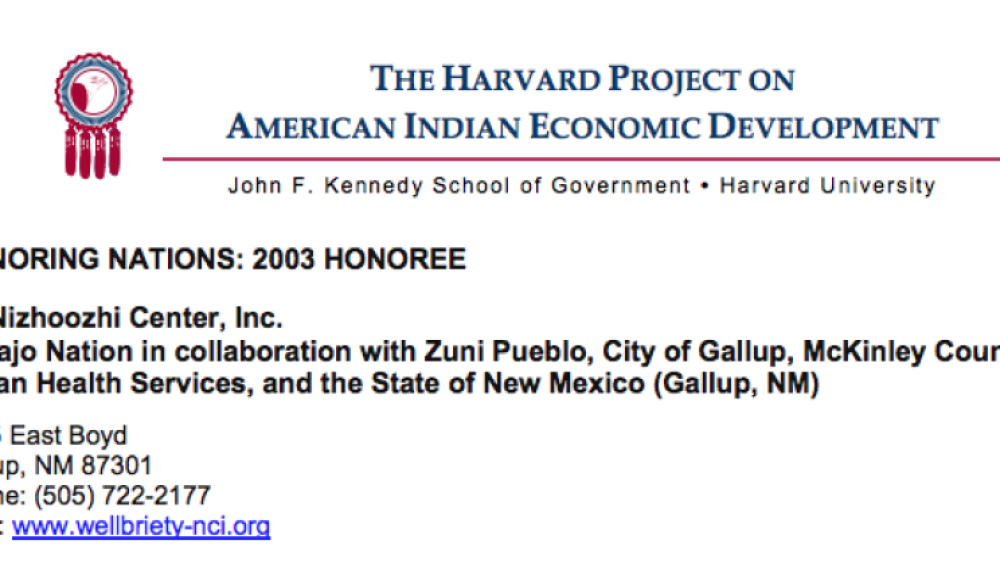
Navajo Nation's Na'Nizhoozhi Center, Inc.
Responding to the distressing rates of accidents, deaths, and other alcohol-related problems in Gallup, NM, the Navajo Nation partnered with Zuni Pueblo, the City of Gallup, McKinley County, and the State of New Mexico to establish the Na’Nizhoozhi Center in 1992. The Center has been an effective…
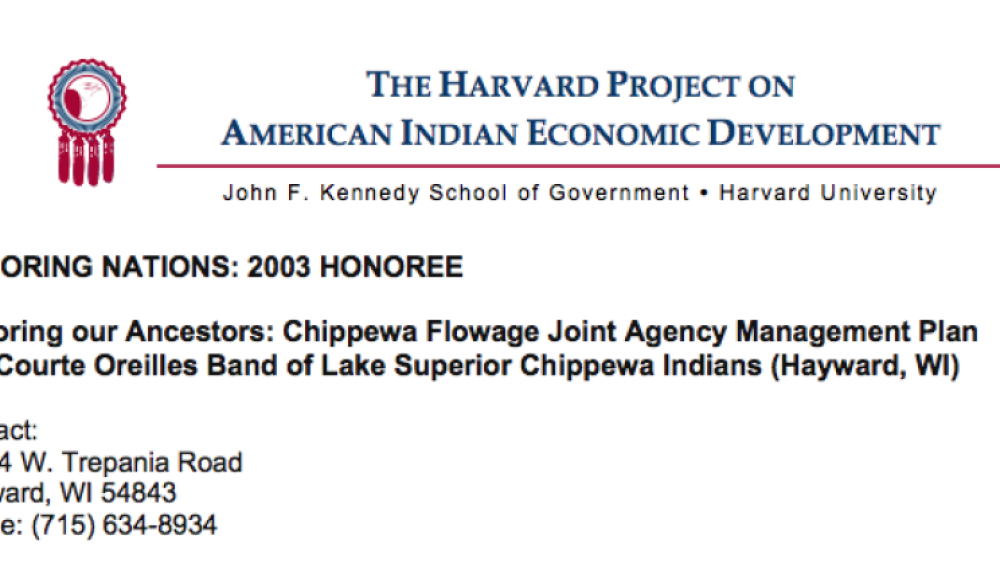
The Chippewa Flowage Joint Agency Management Plan
The Joint Agency Management Plan brings together three governments — the Lac Courte Oreilles Band, the State of Wisconsin, and the US Department of Agriculture Forest Service — to co-manage the Chippewa Flowage, a 15,300-acre reservoir created in 1923 that inundated a tribal village. Taking into…
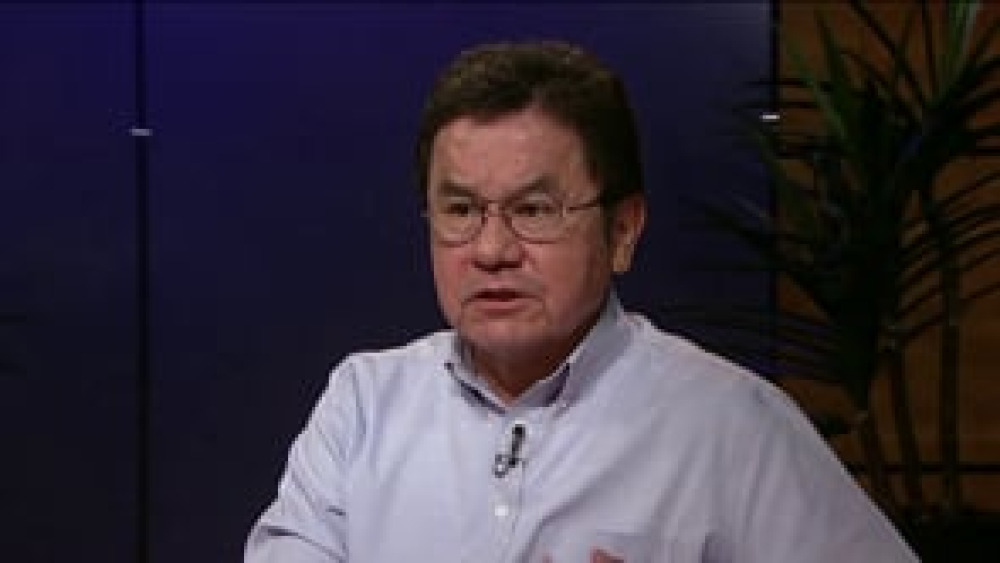
NNI Indigenous Leadership Fellow: John Petoskey (Part 2)
In the second of two interviews conducted in conjunction with his tenure as NNI Indigenous Leadership Fellow, John Petoskey, citizen and long-time General Counsel of the Grand Traverse Band of Ottawa and Chippewa Indians (GTB), discusses the legal doctrine of tribal sovereign immunity and…
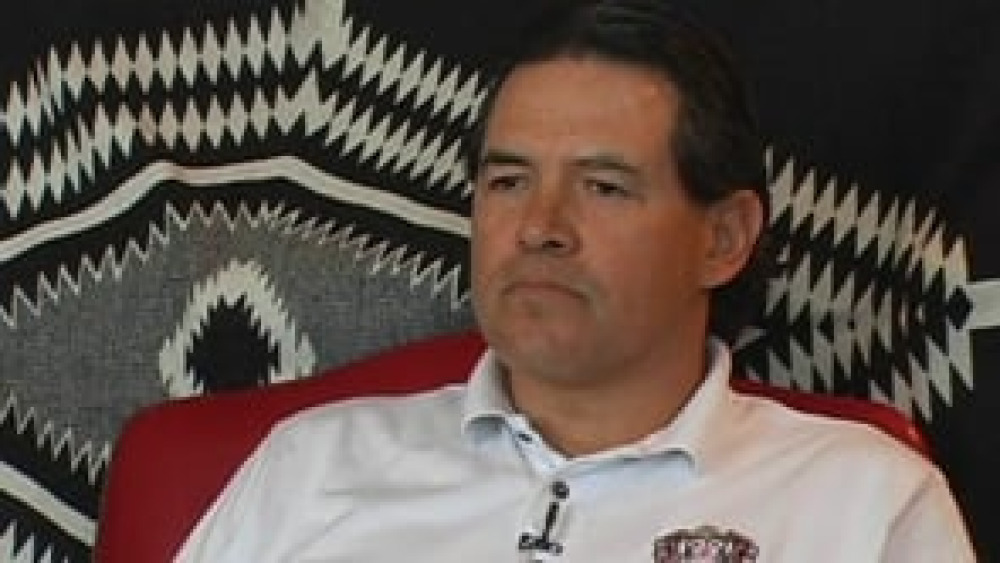
Brian Cladoosby: The Swinomish Indian Tribal Community's Approach to Governance and Intergovernmental Relations
In this wide-ranging interview with NNI's Ian Record, Chairman Brian Cladoosby of the Swinomish Indian Tribal Community discusses Swinomish's unique governance system, its approach to building relationships with other governments to achieve its strategic priorities, and what he feels are the…
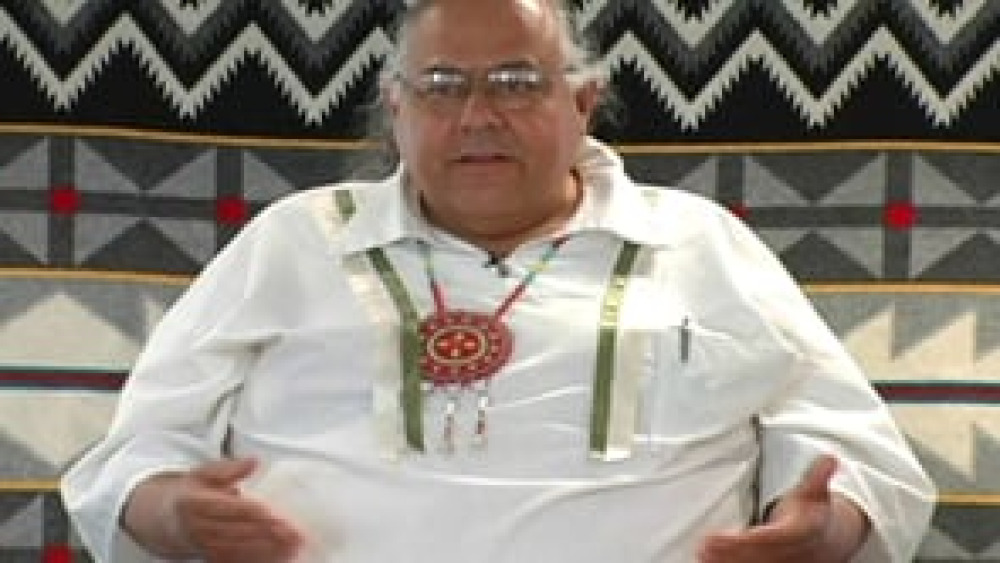
Frank Ettawageshik: Exercising Sovereignty: The Little Traverse Bay Bands of Odawa Indians
Frank Ettawageshik, former chairman of the Little Traverse Bay Bands of Odawa Indians (LTBBO), discusses how LTBBO has systematically built its legal infrastructure in order to fully and capably exercise the nation's sovereignty and achieve its nation-building goals. He discusses some of the…
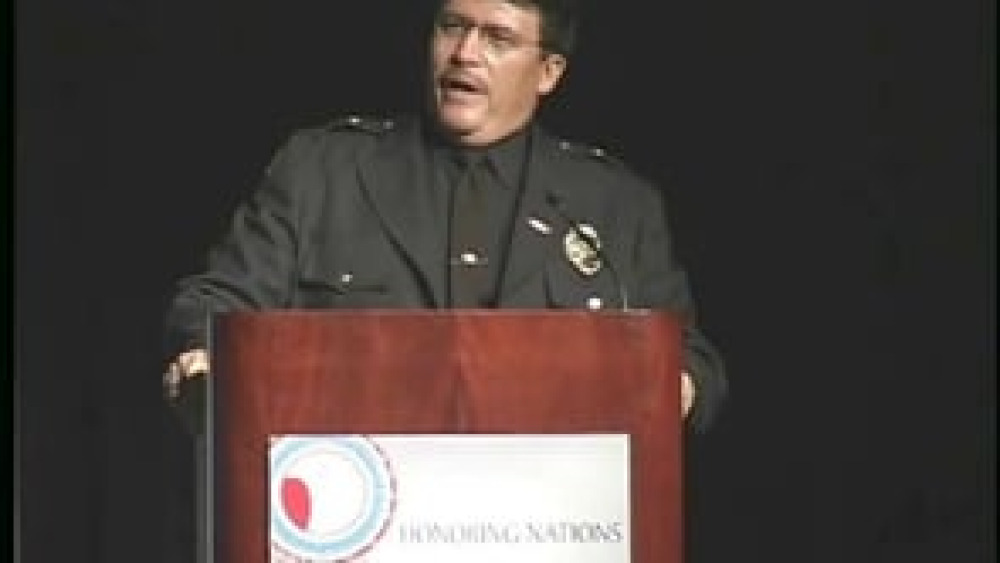
Honoring Nations: Ken James: The Flandreau Police Department (2005)
Former Flandreau Police Chief Ken James present an overview of the Flandreau Police Department to the Honoring Nations Board of Governors in conjunction with the 2005 Honoring Nations Awards.
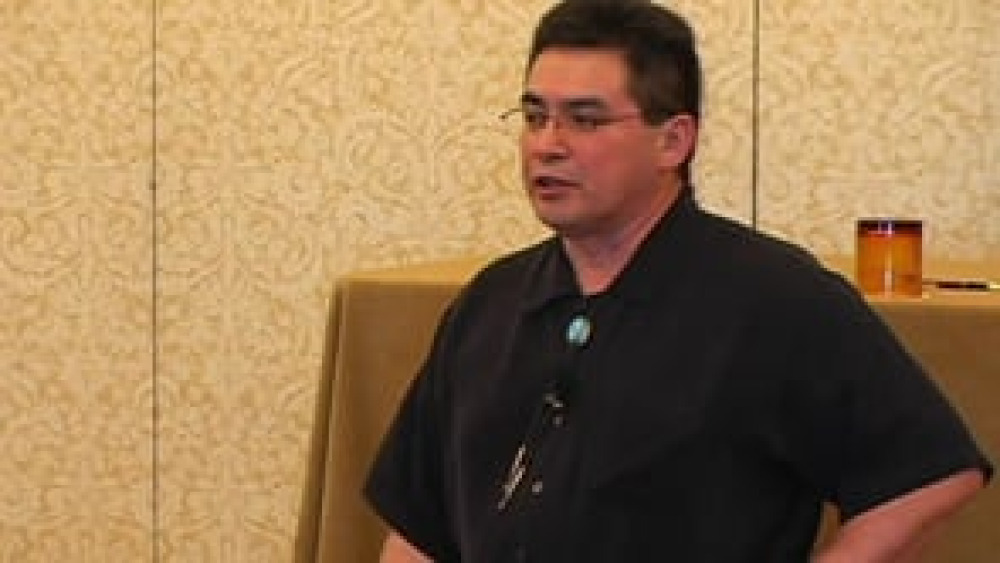
From the Rebuilding Native Nations Course Series: "The Benefits of Intergovernmental Relations"
Former Nez Perce Tribal Treasurer Jaime Pinkham discusses the concrete benefits of engaging in intergovernmental relations for Native nations.

Honoring Nations: Duane Champagne: Government-to-Government Relations
UCLA American Indian Studies Professor Duane Champagne briefly discusses the history and importance of intergovernmental relationships for Native nations, spotlighting th Flandreau Police Department as a striking contemporary example.
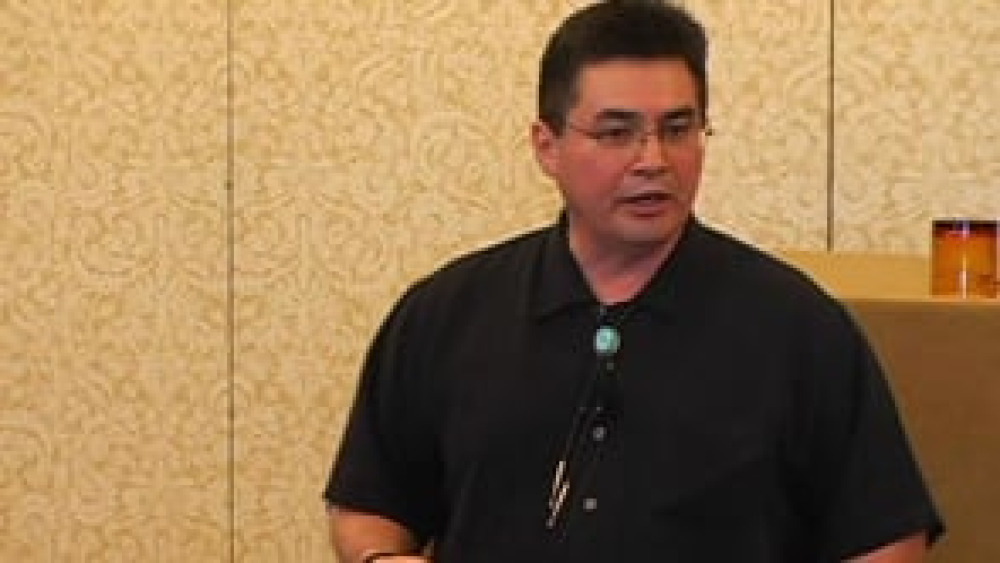
From the Rebuilding Native Nations Course Series: "Intergovernmental Agreements Are Nation-Building Tools"
Former Nez Perce Tribal Treasurer Jaime Pinkham discusses how intergovernmental agreements are becoming widely recognized as a vital nation-building tool for Native nations, amplifying their sovereignty and expanding their jurisdiction.
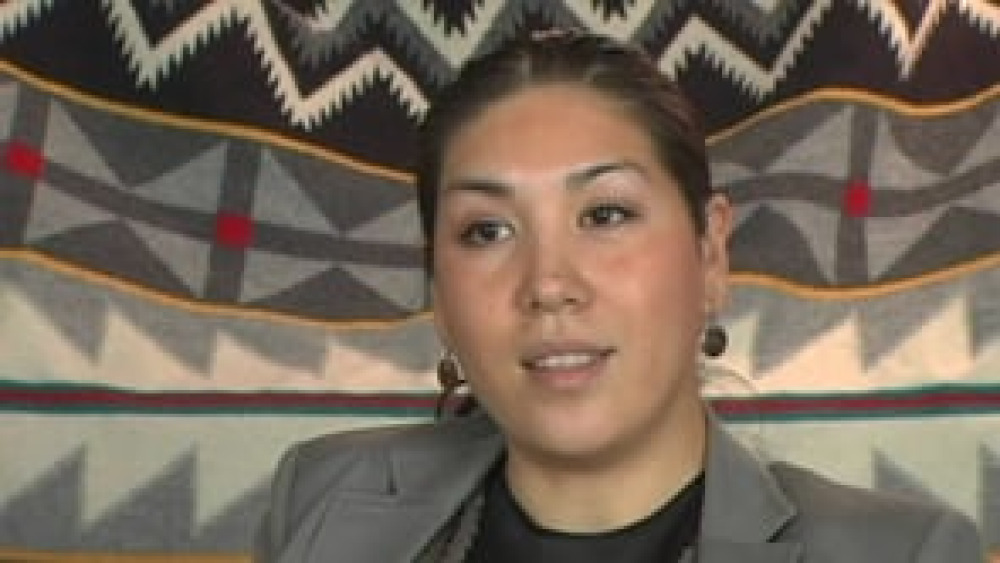
From the Rebuilding Native Nations Course Series: "Intergovernmental Relationships: Tools for Nation Building"
Native leaders discuss the ways that intergovernmental agreements serve as important nation-building tools for Native nations, strengthening their sovereignty and jurisdiction in the process.
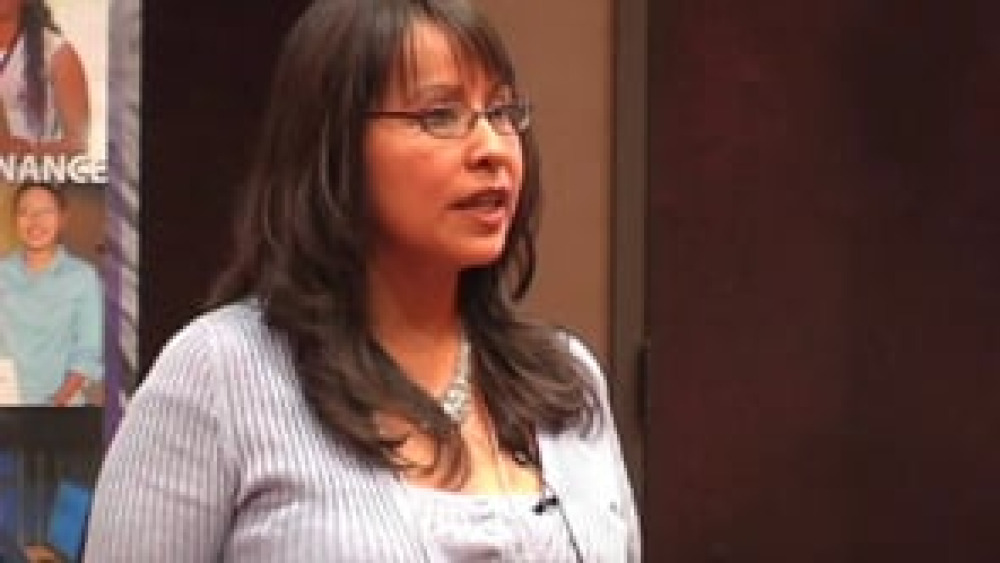
Jill Peters: Fostering Productive Intergovernmental Relations
TGen Director for Legislative Affairs and Community Outreach Jill Peters explains what is necessary to foster productive intergovernmental relations at the local, state, and federal levels, and why it is important for nations to build their capacity to advance their priorities in this…
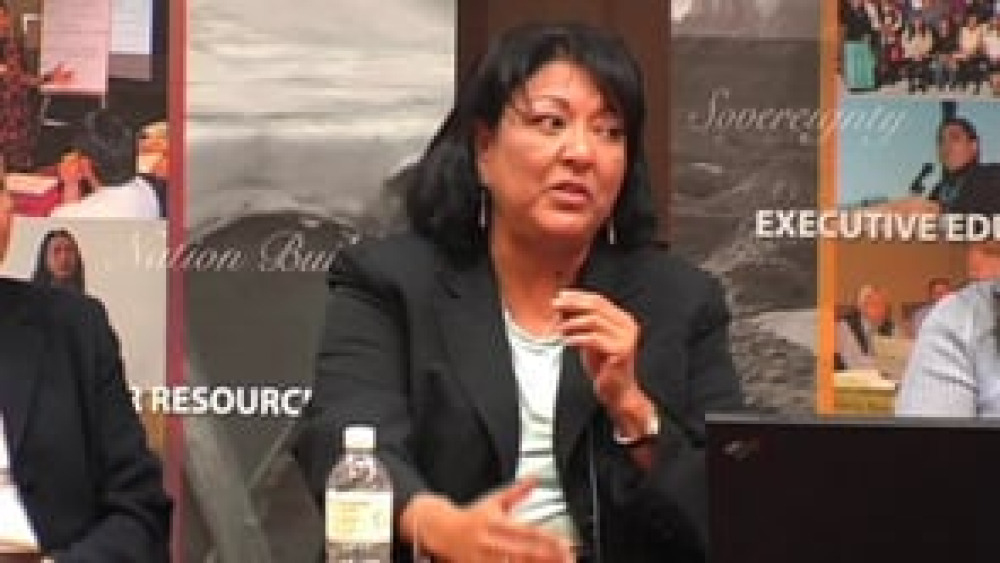
Sheila Morago, Jill Peters, and Theresa M. Pouley: Some Tools to Govern Effectively (Q&A)
Sheila Morago, Jill Peters, and Theresa M. Pouley field questions from the audience concerning lobbying, the importance of public education about tribal sovereignty and development, and how the Tulalip Tribal Court deals with fetal alcohol syndrome and its effects.
Honoring Nations: Ken James: The Flandreau Police Department (2007)
Former Flandreau (South Dakota) Police Chief Ken James discusses how the Flandreau Police Department works to provide culturally sensitive law enforcement to all of the citizens it serves.

Native Nation Building TV: "Tribal Service Delivery: Meeting Citizens' Needs"
Guests Eddie Brown and Karen Diver discuss tribal program and service delivery across Indian Country. They examine the unproductive ways services and programs have been administered in many Native communities in the past, and the innovative mechanisms and approaches some Native nations are…
Jaime Pinkham: Intergovernmental and Intertribal Relations: Walking the Sovereignty Walk
Jaime Pinkham discusses why the building of productive intergovernmental and intertribal relationships is so important, and shows how they can advance the nation-building efforts of Native nations. He shares a number of in-depth case-study examples illustrating how Native nations have engaged in…
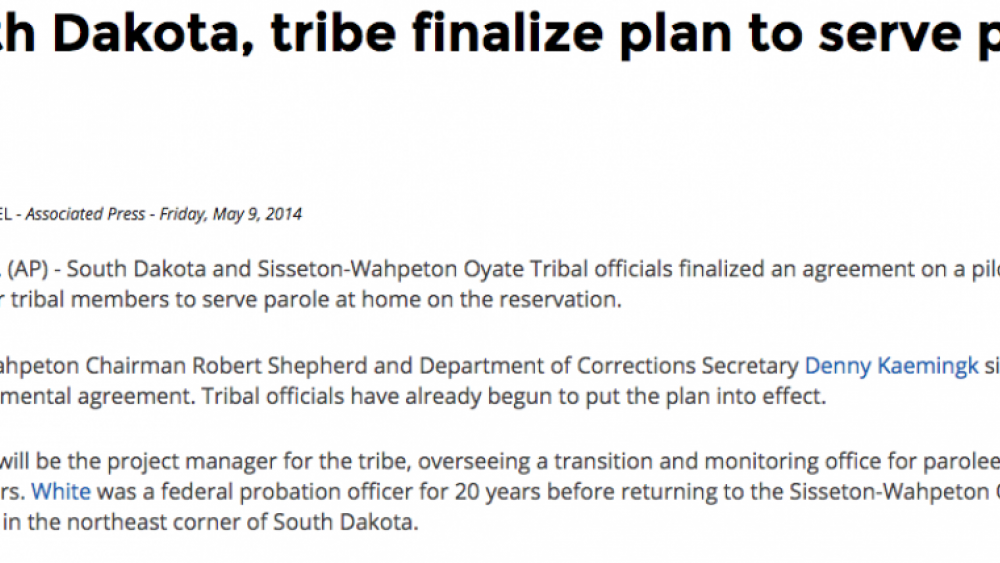
South Dakota, tribe finalize plan to serve parole
South Dakota and Sisseton-Wahpeton Oyate Tribal officials finalized an agreement on a pilot program for tribal members to serve parole at home on the reservation. Sisseton-Wahpeton Chairman Robert Shepherd and Department of Corrections Secretary Denny Kaemingk signed the intergovernmental agreement…
